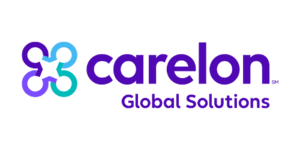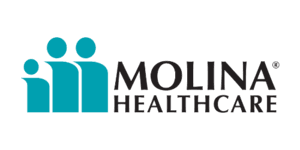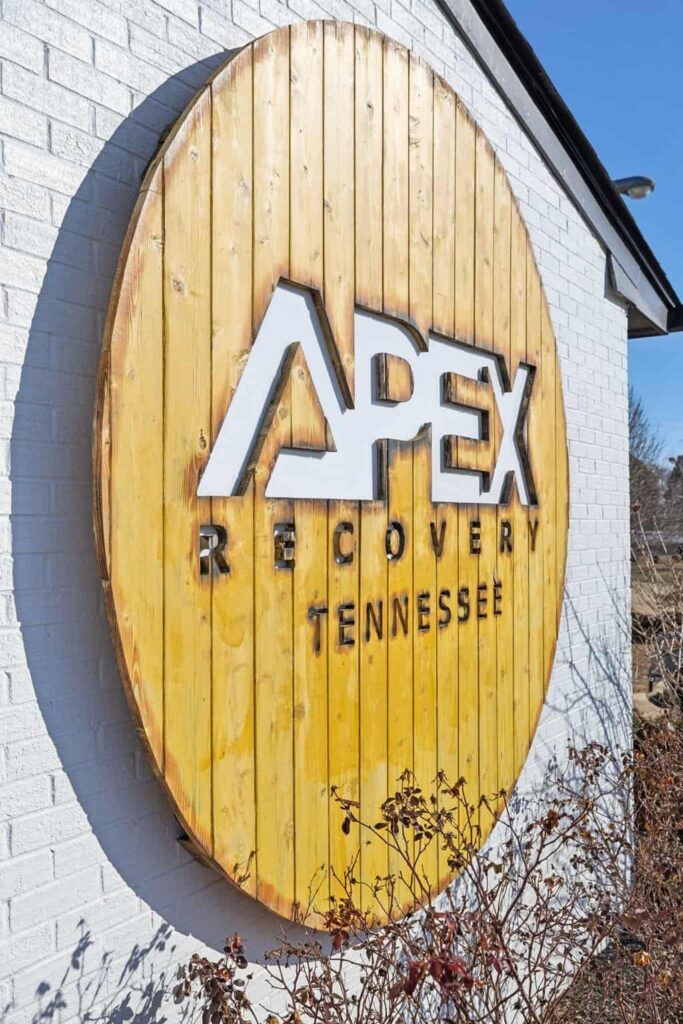










We Accept Most Major Health Insurance
Apex Recovery Tennessee is dedicated to providing compassionate and effective care for those facing depression and major depressive disorder. Depression can impact every aspect of life, making even daily tasks feel overwhelming. We understand the challenges this condition brings and are here to help you regain control of your life. With a focus on high-quality, licensed, and accredited care, Apex Mental Health Recovery offers a welcoming environment where you can access the support you need. We also accept health insurance for depression treatment and can check your insurance coverage levels to make the process as seamless as possible. Conveniently located, our facilities serve Nashville, Memphis, Knoxville, Clarksville, Murfreesboro, and other cities across Tennessee, providing accessible, insurance-covered depression therapy for those in need.
At Apex Recovery, we deeply care about addressing depression because we understand the profound impact it has on individuals and their loved ones. Our commitment stems from a genuine desire to provide hope, healing, and the support needed for brighter, more fulfilling futures. Seeking treatment for depression is never a bad thing—it’s a valuable and transformative step toward healing. If you or a loved one are struggling with depression, Apex Mental Health Recovery is here to help. Our team is ready to guide you toward the path of healing and improved well-being in Tennessee. Contact us today at (615) 703 4639 to learn more about the mental health rehab services for depression that we offer and how we can support you on your recovery journey.
Check Your Insurance
with Apex Recovery
Apex Recovery Tennessee proudly accepts health insurance and can assist you in understanding your coverage levels for depression treatment. We will verify your benefits and guide you through the insurance process, making sure you can focus on getting the care you need without unnecessary stress.

What is Private Health Insurance Coverage?
Private health insurance coverage refers to health plans offered by private companies that provide financial support for a wide range of medical services. In Tennessee, private health insurance plans often cover essential treatments, including care for mental health disorders, allowing residents to have access to necessary support while reducing the burden of out-of-pocket expenses.
Health insurance plans can be obtained individually or through employers and allow flexibility in choosing providers within the insurance network. Many private health insurance policies include mental health benefits, helping cover therapy services, prescribed medication, and specialized treatments. Coverage like this offers peace of mind, knowing you can access high-quality care without overwhelming financial worries.
Check Your Health Insurance Coverage
"*" indicates required fields
Does Insurance Cover Assessments for Major Depressive Disorder?
Yes, insurance often covers assessments for major depressive disorder as part of the treatment process, but the extent of coverage depends on your insurance provider and plan. Many health insurance plans include mental health benefits, which may reduce or eliminate costs for necessary evaluations for depression in Tennessee. It’s important to review your specific coverage details to understand your benefits.
At Apex Recovery Centers, we make the process easier by offering free and confidential depression assessments as part of the treatment admissions process. This allows you to take the first step toward recovery without financial stress. Our team is here to help you verify your insurance coverage for depression treatment and guide you toward a personalized care plan after your assessment.
Does Health Insurance Cover Depression Treatment in Tennessee?
Yes, health insurance for mental health treatment often covers depression in Tennessee, though coverage levels vary depending on your provider and policy. Most plans include mental health services, but it’s a good idea to review your benefits to know exactly what’s covered and if there are any expenses you’ll need to plan for.
You may have access to various treatment options, like inpatient residential care, Partial Hospitalization Programs (PHP), and Intensive Outpatient Programs (IOP). Treatment programs for depression are designed to fit your needs and help you take meaningful steps toward improved mental health and well-being. Understanding your insurance benefits can give you the confidence to focus on getting the care you deserve.
Does Health Insurance Cover Therapy and Counseling for Depression?
Yes, health insurance often covers therapy and counseling for depression, with coverage levels depending on your specific provider and plan details. Many insurance companies offer mental health therapy benefits, so it’s important to check the details of your coverage to understand which services for depression are included and if there are any related costs.
Depending on your plan, you may have access to treatments like group therapy, individual counseling, Cognitive Behavioral Therapy (CBT), and Dialectical Behavior Therapy (DBT). Counselling therapies for depression are widely available in Tennessee and tailored to help you manage your condition effectively. Taking time to understand your benefits can make accessing dedicated care easier and more straightforward for you.
Private Depression Treatment Centers in Tennessee That Accept Insurance
Tennessee has a variety of private treatment centers that specialize in depression care and accept insurance, making it easier to find professional support. Our beautiful Apex Recovery centers in Brentwood and Columbia provide tailored treatment options to suit your personal needs, delivering comprehensive care in a truly supportive setting:
- Apex Recovery Brentwood: 209 Ward Cir, Brentwood, TN 37027
- Apex Recovery Columbia: 2710 Trotwood Ave STE A & B, Columbia, TN 38401
How to Find Major Depressive Disorder Recovery Centers Near Me That Take Insurance
Finding recovery centers for major depressive disorder that accept insurance can significantly reduce out-of-pocket costs and make access to mental health care much more manageable. Using the right tools and resources helps you to connect with facilities that take your health insurance coverage for mental health treatment. Here are five useful methods to guide you as you begin your search:
- Use Your Insurance Provider’s Directory: Most insurance providers offer an online directory of in-network facilities for depression treatment. Log into your insurance account to explore options for mental health rehab services covered by your plan. This tool helps you narrow choices to rehab centers in Tennessee that treat depression and match your coverage allowance.
- Check SAMHSA’s Treatment Locator: The SAMHSA Treatment Locator is a reliable resource to find nearby facilities that take insurance for depression treatment. Focus your search on cities such as Nashville, Brentwood, and Columbia, which are known for offering quality depression recovery programs. This allows you to filter options based on insurance acceptance.
- Call the Number on Your Insurance Card: Your insurance card includes a helpline dedicated to coverage inquiries. This number helps you confirm which mental health treatment centers in Tennessee accept your insurance and explain details like co-pays or deductibles. Call the number listed to get answers tailored to your specific plan.
- Check the Facility’s Website to See if They Accept Insurance: Visit the websites of facilities you’re considering to verify if they accept your insurance. Most mental health rehab centers provide a section on insurance plans accepted, out-of-network options, and the insurance verification process. This step gives you clear information when looking into treatment for depression near you.
- Contact the Facility and Ask if They Take Insurance: Reach out to the facility directly to confirm they accept insurance for depression-related care. They can share details about coverage for specific treatments like therapy, medications, or innovative options such as TMS or ketamine therapy. Always ask about co-pays and prior authorizations.
Free Depression Assessment
Does Insurance Cover Depression Medication?
Yes, insurance can cover depression medication, but this depends on your individual plan. Factors like whether the medication is listed on the insurer’s formulary or falls under in-network pharmacy options can influence coverage. It’s essential to check with your provider to understand any co-pays, deductibles, or prior authorization requirements.
Common medications for depression, such as selective serotonin reuptake inhibitors (SSRIs) like sertraline or fluoxetine, and serotonin-norepinephrine reuptake inhibitors (SNRIs) like venlafaxine, may be covered by private health insurance. These medications, however, must be prescribed by a qualified healthcare provider after a thorough evaluation of your condition at an in-network mental health treatment provider like Apex Recovery.
Does Insurance Cover Ketamine for Depression?
Yes, although insurance coverage for ketamine treatment isn’t the same for everyone. Some plans may cover part of the cost, while others might not include it at all. It’s always a good idea to check your policy details or speak with your provider to be certain of what’s covered.
At Apex Recovery, we take the time to assess your needs and help identify the best depression treatment options for you. Contact us today at (615) 703 4639 – we’re here to help figure out what works and to guide you through understanding how your health insurance might cover ketamine therapy for depression.
Does Insurance Cover TMS for Depression?
Yes, however, insurance coverage for Transcranial Magnetic Stimulation (TMS) varies quite a bit. Many plans provide partial or full coverage, especially if TMS is deemed medically necessary, but some may have stricter requirements or exclusions. It’s important to review your policy and talk to your insurance provider to understand your options for TMS depression treatment in Tennessee.
Apex Recovery works with you to design personalized treatment programs that match both your insurance coverage levels and unique needs for depression care. Whether it’s navigating coverage details or finding the right therapeutic approach, we’re here to support you every step of the way.
Does Insurance Cover Retreats for Depression?
Yes, insurance may cover part of the treatment during the retreat, though insurance coverage for depression retreats often depends on your plan. Depression retreats in Tennessee offer a focused environment for intensive therapy, combining treatments like counseling, mindfulness, and wellness activities. While some insurance policies may cover parts of the cost, others might not include it, so it’s important to double check.
During our insurance verification process, we design custom-tailored programs that take your insurance coverage and personal needs into account. From navigating your policy to creating a plan that works for you, we’re here to help you access the depression treatment you need in the most effective way possible. Contact Apex Recovery today to find out more about using your health insurance for depression retreats in Tennessee.
Check Your Insurance Coverage
Common Depression Treatment Programs in Tennessee Covered by Health Insurance
Accessing your mental health care in Tennessee is an essential step toward managing and treating depression. For residents of the Volunteer State, health insurance typically provides options for a range of treatment programs for depression and major depressive disorder (MDD). Understanding what’s covered under your plan, from inpatient programs to outpatient depression therapy near you, is key to choosing the right care approach for your needs. Below are common mental health treatments often covered by insurance, along with how they address different forms of depression.
Inpatient and Residential Treatment for Major and Suicidal Depression
Inpatient and residential treatment programs provide 24-hour care in a secure facility. Patients live on-site while undergoing structured therapy, medication management, and wellness-focused activities designed to stabilize severe depression symptoms, particularly in crisis situations. Residential programs also offer a safe environment, essential for those struggling with thoughts of self-harm.
When major or suicidal depression feels overwhelming, inpatient care offers a chance to focus entirely on recovery. Health insurance often helps cover these treatments because they’re considered clinically necessary interventions for high-risk cases. With proper authorization from your provider, residential programs for depression in Tennessee can serve as a foundation for achieving long-term emotional stability.
Outpatient Therapy and Counseling for Mild to Moderate Depression
Outpatient therapy involves going to scheduled sessions with mental health professionals while continuing to live at home. It’s a flexible option that enables you to participate in regular counseling, group therapy, or behavioral interventions like Cognitive Behavioral Therapy (CBT). This approach may work well for mild or moderate depression.
For depression that doesn’t require constant supervision, outpatient programs offer accessible, ongoing support. Many health insurance plans, including PPO and HMO networks, cover outpatient programs for depression in Tennessee with manageable co-pays. Choosing an in-network provider can also reduce out-of-pocket expenses, making therapy more affordable while still effective.
Partial Hospitalization and Intensive Outpatient Programs (PHP/IOP) for Severe or Persistent Depressive Disorder
PHP and IOP programs strike a balance between inpatient care and traditional outpatient services. They involve attending structured therapy for several hours daily while allowing you to return home in the evenings. Partial hospitalization and intensive outpatient programs often incorporate group therapy, one-on-one counseling, and psychiatric evaluations.
For those battling severe depression but not in immediate danger, PHPs or IOPs for depression in Tennessee offer an intensive yet flexible form of care. Health insurance benefits often cover our outpatient services at Apex Recovery, as they’re cost-effective alternatives to hospitalization. Prior authorization may be required, so it’s important to confirm your details with your insurance provider.
Telehealth and Home-Based Services for Seasonal, Elderly, or Situational Depression
Telehealth services connect patients with licensed therapists and psychiatrists via video or phone calls, offering convenient access to mental health care for depression. For elderly or homebound patients, this option provides regular therapy sessions in a comfortable, familiar environment, often supported by remote medication management.
Seasonal and situational depression often responds well to home-based services due to the ease of maintaining consistent treatment. Many insurance providers now include telehealth for depression in their coverage, especially under the expanded mental health benefits that came into effect after the Affordable Care Act.
Medication Management and Psychiatric Evaluations for Clinical and Bipolar Depression
Medication management involves monitoring and adjusting prescriptions to treat depression effectively. Psychiatric evaluations focus on assessing mental health conditions to create appropriate treatment plans, generally combining therapy with depression medication.
Medications like antidepressants can play an important role in managing clinical and bipolar depression. Health insurance frequently covers the cost of psychiatric appointments and medication, although co-pays or deductibles may apply. Verifying coverage details creates a smoother process for you, from obtaining prescriptions to scheduling follow-ups.
Dual Diagnosis Treatment for Depression with Co-Occurring Substance Use
Dual diagnosis programs for depression simultaneously treat both depression and substance use disorders. Specialized treatments integrate therapies like cognitive-behavioral techniques while addressing underlying emotional triggers contributing to both conditions at the same time.
Apex Mental Health Recovery believes that effective management of dual diagnoses is critical to holistic recovery that truly lasts. Health insurance often assists with treatments for co-occurring disorders in Tennessee, recognizing the deeply interconnected nature of mental health and addiction. Insurance coverage for our expert dual diagnosis rehab services, including therapy and medication, can greatly reduce the financial burden on patients.
Specialised Programs for Postpartum and Adolescent Depression
Rehabilitation programs targeting postpartum depression focus on supporting new mothers through tailored therapies and medication where needed. Similarly, adolescent depression programs address the unique emotional and developmental challenges faced by younger individuals.
Both demographics can benefit from specialized care plans that integrate family involvement where possible. Many health plans include coverage for postpartum and adolescent depression initiatives in Tennessee, acknowledging the importance of early intervention in preventing long-term mental health issues.
Therapeutic Approaches like CBT, Family Therapy, and TMS for Treatment-Resistant Depression
Therapies such as CBT and family counseling focus on modifying thought patterns and improving communication within your support systems. Transcranial Magnetic Stimulation (TMS) is a cutting-edge, noninvasive option targeting brain function in treatment-resistant cases of depression.
CBT, TMS, and family therapy can provide effective alternatives when traditional therapies don’t seem to be helping. Health insurance may cover TMS with prior approval, as well as counseling under behavioral health treatment benefits.
Health Insurance Providers That Cover Major Depressive Disorder Treatment in Tennessee
BlueCross BlueShield of Tennessee, Cigna Healthcare, and Aetna are prominent providers offering comprehensive mental health coverage for depression in Tennessee. These insurers often include treatments like therapy, medication management, and inpatient or outpatient care for major depressive disorder. Their broad networks and tailored mental health benefits make them reliable options for accessing rehab treatment for depression near you.
UnitedHealthcare (UHC), Ambetter (from Celtic Insurance), and Oscar Health also prioritize mental health coverage in Tennessee. These providers support various treatment options for depression, including counseling and intensive outpatient programs, making access to high-quality care much easier for residents of the Volunteer State. They frequently include behavioral health services as a core part of their plans, often with manageable co-pays and deductibles.
Humana, Molina Healthcare, National General (an Allstate company), and Farm Bureau Health Plans offer flexible solutions for treating depression in Tennessee. From telehealth services to specialized programs for severe cases, these insurers often feature resources adapted to suit the needs of their members. Their emphasis on mental health highlights the growing focus on accessible, effective depression treatment across the state.
How to Get Insurance to Pay for Depression Treatment in Tennessee
Getting your insurance to cover depression treatment doesn’t have to be complicated. Simply reach out to us at Apex Recovery, and we’ll take care of everything for you. From checking your coverage levels at the beginning to handling the entire process throughout, we’re here to make it as easy and stress-free as possible.
To get started, call Apex Recovery Tennessee today at (615) 703 4639 or fill out the form on this page. Our dedicated professionals are here to guide you toward the care you deserve and make the process smooth and straightforward. Depression can feel impossible to overcome, but there is always a way out. With the right support, brighter days are within reach.
- In 2022, 23% of adults in the U.S. received mental health treatment, up from 19% in 2019.
- In Tennessee, 18% of adults experienced frequent mental distress in 2021.
- Among non-elderly adults with mental illness or substance use disorders, 58% were covered by private insurance in 2020.
- In the U.S., 20% of children have a reported mental health condition, and an estimated 40% will be diagnosed with one by age 18.
- Approximately 50.8% of caregivers in the U.S. reported difficulty accessing mental health services for their children in 2020-2021.
- Over 3.2 million Tennesseans live in areas with a shortage of mental health professionals.
